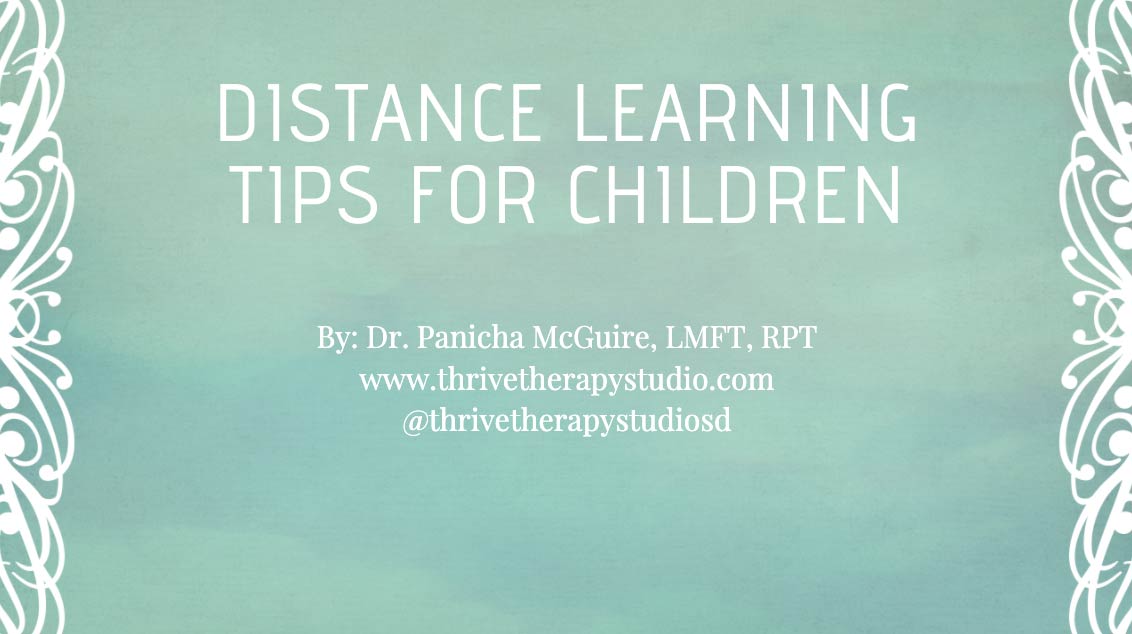As therapists who work primarily with children, teens, and their families, we at Thrive have all been witnessing just how stressful this fall has been for families. Everyone seems worried and anxious about distance learning so we thought we would put together some tips to help families adjust as best as they can! This blog reviews our tips for younger children and we will post one about teens later this week!
Get organized
- Create a schedule: dedicate study time, live instruction time, and break times
- Schedule something active (not screens) for break time (remember, kids are used to having recess at school!). Try walking around the block, playing in the backyard, or even a fitness video indoors. This will help them get the energy out and be able to focus on other tasks.
- Set up a dedicated study area and a break area. If your child is younger, they might need to be in the same room as you because they need more guidance. Older children who can do independent work should be in an area where they won’t be distracted.
- Have all the necessary supplies at their study station to reduce distraction when they need to get up and grab something
Increasing focus/attention
- Use headphones to reduce distraction. It’ll also let other people in the home focus on their own work.
- Have non-distracting fidget toys for children who crave sensory input (ones without sounds or will cause a big distraction for the class)
- Ex – Putty, stretchy/rubber worms, stress ball or squishy, magnets
- If sitting, make sure the child is in a 90/90/90 position.
- 90 Degree angles at elbows, hips, and knees with feet flat on the floor
- If your child cannot sit still try using alternatives to sitting
- Ex – Laying on stomach, standing desk, sitting on yoga ball or wobbly chair
Manage stress
- This is an unusual situation! It is normal to feel stressed, anxious, or have high emotions. No one can expect parents to be a full-time teacher nor for children to do as well as they did with in-person learning.
- Offer reassurance that this is tough and others are probably struggling too. Contact the teacher or the child’s support team if assignments or classes are too challenging (is their room to adapt or offer flexibility?)
- Help children maintain contact with their friends. The thrill of starting school is usually when you see your friends again. With online learning, this isn’t possible. Schedule Facetime/Zoom calls for them with their classmates outside of class time.
- Be compassionate and patient. Your child is probably trying their best. Tune in to what they need. Maybe they need more movement breaks than they are allowed. Have structure, but don’t be too rigid.
For most families, this is going to be a huge adjustment and possibly very challenging. The best we can do is just approach it with a positive attitude, be prepared (hopefully by using some of our tips), and try to be flexible with our expectations and adjust as needed over time! If any families need further support, please feel free to reach out to us at Thrive!
Reach out to start
your healing journey


